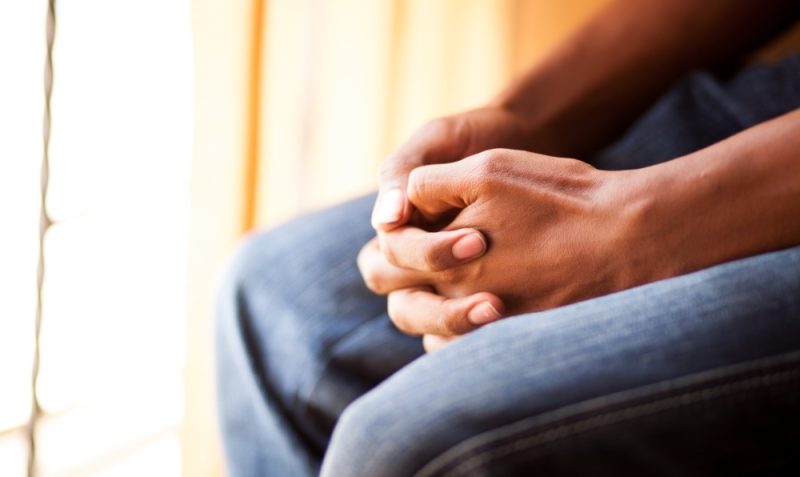Responding to human rights violations of LGBT people
 © Frontline AIDS
© Frontline AIDS
LGBT and human rights activists trained in using community-based system to monitor and respond to human rights violations of LGBT people.
Isobel Fergus is a support officer for knowledge at the Alliance.
LGBT and human rights activists from Nigeria, Mozambique, Zimbabwe, Kenya and Uganda gathered recently in Nairobi to learn how to better record and respond to human rights violations of LGBT people.
The activists are part of the Partnership to Inspire, Transform and Connect the HIV Response (PITCH) programme, which builds capacity of community-based organisations to advocate for equal and full rights for key populations to HIV and sexual and reproductive health services.
LGBT people face criminalisation, discrimination and violence
These organisations respond to situations of violence, lack of security and denial of services to LGBT people as part of their daily work.
While the human rights-context for LGBT people differs for each of these countries, there are many parallels.
In Nigeria, Kenya, Zimbabwe and Uganda LGBT people face criminalisation, and activists from all five countries reported experiences of family exclusion, negative media attention, harmful cultural attitudes, violence and difficulty accessing health services.
As one participant put it: “In my country, if I identify as a gay person I am considered a curse”.
The Nigerian context is particularly challenging, as the recent mass arrests for ‘homosexual acts’ in Lagos state demonstrate. In 2014, the signing of the Same Sex Prohibition Bill into law has further driven LGBT populations underground, and in northern Nigeria, which operates under Sharia law since 2000, it is punishable by death.
In my country, if I identify as a gay person I am considered a curse.
Mozambique was the outlier of the group and a reason to be optimistic, with their penal code successfully amended to remove colonial era dispositions against homosexuality in 2007.
However, even with the removal of discriminatory laws, the societal landscape remains difficult. There are no laws protecting LGBT people from discrimination. Representatives from the LGBT organisation LAMBDA recounted how even after submitting all required documents to register as an NGO seven years ago, they remain unrecognised.
Tool to help record and respond to human rights violations
Despite these difficult contexts, the feeling throughout the workshop was one of hope and positivity. The young activists were eager to continue pushing their governments to respect, protect and promote human rights, not just for themselves but above all for other LGBT people in their countries.
To help them do this more effectively, participants were trained in using Rights-Evidence-ACTion (REAct), a community-based system for monitoring and responding to human rights-related barriers in accessing HIV and health services, developed by the Alliance.
REAct enables community-based organisations to record individual cases of human rights violations primarily in order to better respond to crisis situations. This could entail e.g. finding emergency accommodation for a person banished from their home for being gay, getting HIV medication for someone who cannot access it because of discriminatory attitudes of health care staff, or getting a lawyer for legal advice or representation.
Information about a case of human rights violation is collected through a semi-structured interview conducted by trained staff. The interviewer will ask questions not only about the particular event that led the person to seek support, but will also try to understand their broader situation and human rights needs to enable the organisation to provide or refer to a full range of support.
Secondly, information collected through REAct helps implementing organisations identify the right combination of human rights interventions in the context of the HIV response, and design their programming accordingly. For example, if data consistently shows that people coming to them are not sufficiently aware of their rights, the organisation may design or fundraise for a legal literacy programme.
Evidence for advocacy
Thirdly, by systematically documenting information about rights-related barriers in accessing HIV services, REAct helps community-based organisations build a body of evidence for advocacy they can use to hold governments and other actors accountable.
A recent report of human rights abuses of sexual and gender minorities in Uganda, And that’s how I survived being killed, is based on 264 verified cases of human rights abuses that were recorded using REAct.
It includes testimonies of physical threats, violent attacks, torture, arrest, blackmail, media intrusion, termination of employment, harassment, eviction, mob justice, and family banishment, often leaving individuals without jobs, homes, resources, and support.
It is harrowing evidence of what happens when the state fails its duty to protect the human rights of LGBT people, and a powerful resource to help put pressure on the government, media, families and the international community to act.
Read more about the Alliance’ human rights-based approach to HIV, and find resources for working with men who have sex with men in hostile environments.
This article was written as the International HIV/AIDS Alliance, before we changed our name to Frontline AIDS.
Tags
KenyaLGBTNigeriaPITCHUgandaZimbabwe


